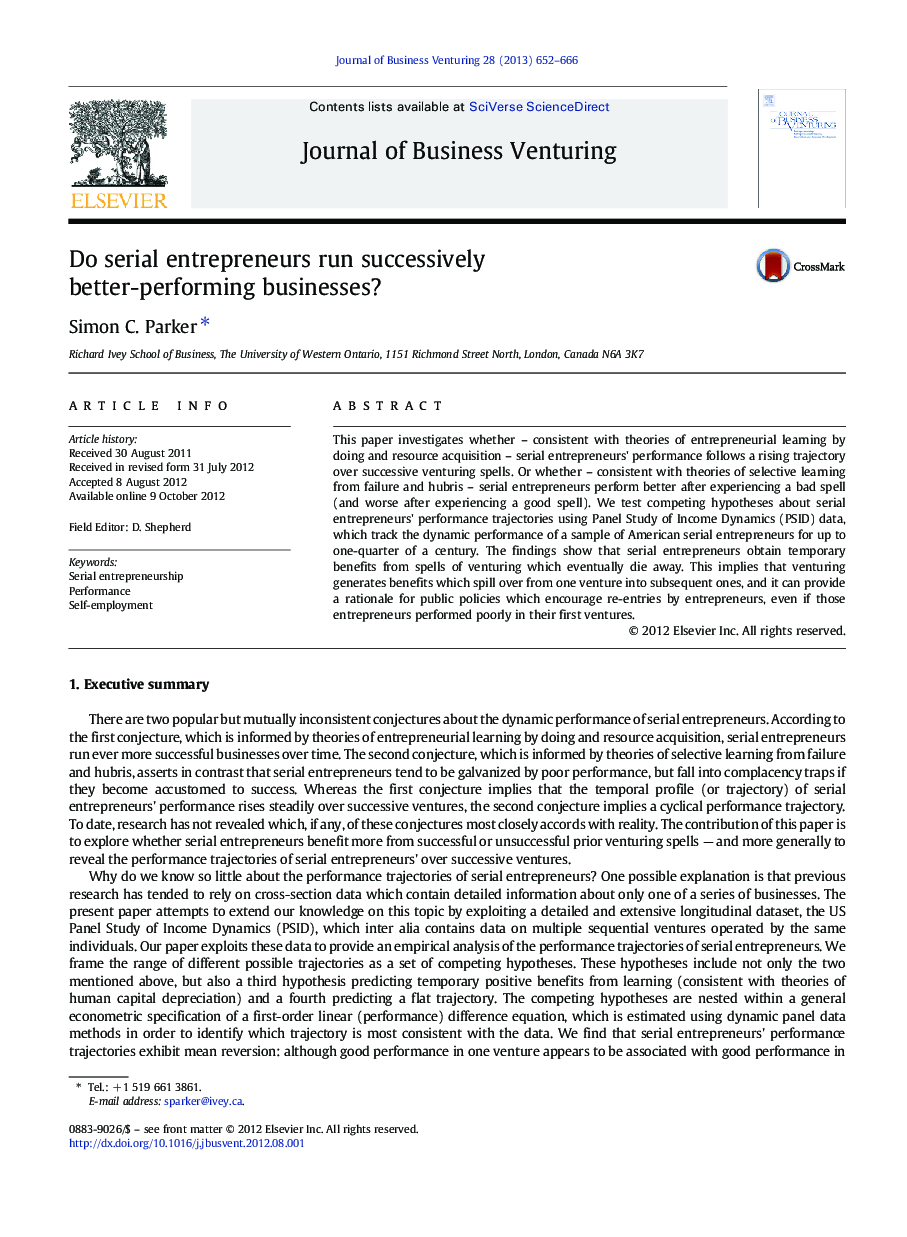| Article ID | Journal | Published Year | Pages | File Type |
|---|---|---|---|---|
| 1019392 | Journal of Business Venturing | 2013 | 15 Pages |
This paper investigates whether – consistent with theories of entrepreneurial learning by doing and resource acquisition – serial entrepreneurs' performance follows a rising trajectory over successive venturing spells. Or whether – consistent with theories of selective learning from failure and hubris – serial entrepreneurs perform better after experiencing a bad spell (and worse after experiencing a good spell). We test competing hypotheses about serial entrepreneurs' performance trajectories using Panel Study of Income Dynamics (PSID) data, which track the dynamic performance of a sample of American serial entrepreneurs for up to one-quarter of a century. The findings show that serial entrepreneurs obtain temporary benefits from spells of venturing which eventually die away. This implies that venturing generates benefits which spill over from one venture into subsequent ones, and it can provide a rationale for public policies which encourage re-entries by entrepreneurs, even if those entrepreneurs performed poorly in their first ventures.
► Serial entrepreneur performance does not uniformly improve over venture spells. ► Serials obtain temporary benefits from venturing spells which soon die away. ► Performance trajectories are invariant to industry switches by serials. ► The estimates support bankruptcy laws encouraging timely re-entries.
